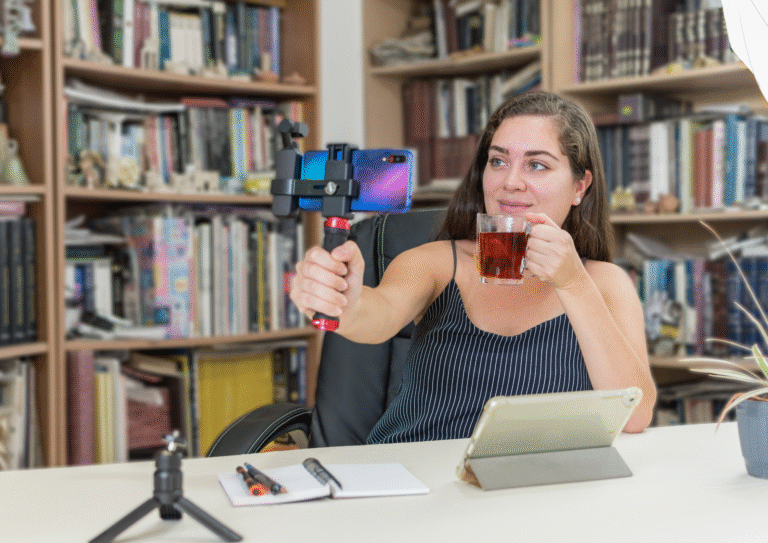
Ever feel that nagging worry? Like everyone else is having more fun than you, living an amazing life? Maybe you scroll through social media, seeing perfect pictures of friends’ vacations, job successes, or fancy meals. , and suddenly, you feel a pang of not being good enough. That feeling, that deep problem of always comparing yourself to others, wanting to belong. , that’s what we call Fear of Missing Out, or FOMO. If you’ve ever wished for more peace and calm amongst all the online noise, reading on will help you understand and fix this common problem.
FOMO is way more than just a small annoyance. , it’s a powerful feeling that really affects your mind, how you make choices, and how happy you are with life. It’s not just about missing an event. , it’s about feeling left out, worrying you’ll regret something, and the constant pressure to keep up with a perfect online world. This constant worry matters more than many people realize because it quietly steals our joy from the present. , pushing us to look for approval from others instead of finding happiness within ourselves.
Some people might say FOMO is just silly. , like it’s your own fault, and you can fix it by just “logging off” or “putting your phone down.” They might think people are too sensitive. , and that comparing yourself to others is normal, even a good thing that pushes you forward. On the one hand, there’s some truth to this idea. , we are responsible for how we use our phones and social media. However, this way of thinking often misses the deeper reasons why we feel FOMO. It also ignores the strong pressure from society that feeds FOMO. It’s not just about one person. , it’s about how social media apps are built to keep us glued to our screens. , and always knowing what we might be missing. It’s almost like the world wants us to stay connected. , even if it makes us feel bad.
The science behind FOMO shows it’s a mix of how our minds work and how our brains are wired. Deep down, FOMO connects to our basic human need to belong. , to feel like part of a group. Long ago, being part of a group helped us survive. , so the fear of being left out is deeply set in us. Today, with all the constant social media updates, this old wiring is always being triggered. As a result, our brains see these updates as possible threats to our social standing. , turning on the same brain parts that deal with rewards and punishments. When we see others having fun, the reward part of our brain, especially an area called the ventral striatum, can light up. , showing us a reward we’re not getting. This makes us feel like we’re missing out and need to act fast.
A big study by Przybylski and his team in 2013 looked into FOMO. They found that if you feel FOMO a lot, you’re more likely to be in a bad mood and less happy with your life. , also, you’ll feel more negative when you use social media.
“Our findings indicate that FoMO is a robust predictor of both negative feelings during social media use and lower overall mood and life satisfaction.” **
This shows that seeing everyone else’s lives all the time, instead of bringing us closer, can actually make us feel more alone and sad. Furthermore, the study suggested that people who feel FOMO more often are more likely to check social media all the time. , creating a never-ending cycle.
Also, how our brain works plays a role. , FOMO involves something called the dopamine system. Dopamine is a chemical that makes us feel good and want more. Every time you check your phone and see a new alert or post, your brain gets a small burst of dopamine. This feeling, like winning a little prize, makes checking your phone super addictive. , just like a slot machine. This explainer on FOMO shows why understanding its psychological roots is crucial for well-being.
Coping with FOMO requires a few different steps that look at both our phone habits and our deeper needs. First, use social media carefully. Instead of just scrolling without thinking, set certain times to check social media. , and be smart about what you look at. Ask yourself: “Does this really help me, or does it make me feel bad?” Second, practice gratitude. Thinking about what you have instead of what you don’t can really make you feel less like you’re not good enough. Keep a gratitude journal, writing down things you’re thankful for each day. Third, focus on real-life connections. Spend time and energy with friends and family in person. These real connections give you a deeper sense of belonging that online chats often can’t. As a result, you’ll find more true happiness.
Moreover, being kind to yourself is very important. Remember that everyone feels like they’re not good enough sometimes. Be nice to yourself. , and understand that the perfect lives you see online are usually not the whole story. Finally, think about a digital detox. Even a short break from social media can help reset your brain and lessen the urge to constantly check. According to an article from the American Psychological Association, taking breaks from social media can make you feel better and less worried.
In conclusion, FOMO is a strong modern worry. , it comes from our old need to connect and is made worse by the digital world. It’s not a small problem. , it’s a big factor that affects our happiness and mental health. By understanding why we feel it and using smart ways to deal with it, we can get back our peace of mind. , and focus on living our own happy lives, instead of always chasing what others seem to be doing. Take a moment to think. , what’s one small thing you can do today to make FOMO less powerful in your life? Maybe it’s turning off notifications. , or simply enjoying a moment without needing to share it. The power to beat this digital dread is inside you.
References:
Przybylski, A. K., Murayama, K., DeHaan, C. R., & Gladwell, V. (2013). Motivational, emotional, and behavioral correlates of Fear of Missing Out. Computers in Human Behavior, 29(4), 1841-1848.
American Psychological Association. (n.d.). The impact of social media on youth mental health. Retrieved from https://www.apa.org/topics/social-media-internet/social-media-and-youth-mental-health




